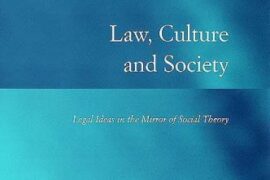2022 EBS 수능특강 영어 변형문제 (11강 Exercise 5)
수능특강 영어 변형문제(11강 Exercise 5)
[빈칸 추론 → 요약문]
다음 글의 내용을 한 문장으로 요약하고자 한다. 빈칸 (A), (B)에 들어갈 말로 가장 적절한 것은?
In explaining others’ actions, we frequently commit the fundamental attribution error. We attribute others’ behavior so much to their inner dispositions that we discount important situational forces. The error occurs partly because our attention focuses on the person, not on the situation. A person’s race or sex is vivid and gets attention; the situational forces working on that person are usually less visible. Slavery was often overlooked as an explanation for slave behavior; the behavior was instead attributed to the slaves’ own nature. Until recently, the same was true of how we explained the perceived differences between women and men. Because gender-role constraints were hard to see, we attributed men’s and women’s behavior solely to their innate dispositions. The more people assume that human traits are fixed dispositions, the stronger are their stereotypes and the greater their acceptance of racial inequities.
When explaining someone’s behavior we often do not take the impact of the (A) into account. So we (B) the individual traits and attitudes. |
(A) (B)
① disposition ………… overestimate
② disposition ……..…. underestimate
③ tendency ……………value
④ situation ……….…. overestimate
⑤ situation ………..… underestimate
정답 및 해설
정답: ④
요약문 해석: 누군가의 행동을 설명할 때 우리는 종종 상황의 영향을 고려하지 않는다. 그래서 우리는 개인의 특성과 태도를 과대평가한다.
*take sth into account ~을 고려하다, 계산에 넣다
해설: 요약문은 주제문의 핵심표현을 정리한 것이다. 특히 주제문의 핵심표현을 선지에 말 바꿔쓰기 하므로 어휘가 어떻게 바뀌는지 추적해야 한다.
In explaining others’ actions, we frequently commit the fundamental attribution error. 다른 사람의 행동을 설명할 때, 우리는 자주 기본적 귀인 오류(基本的歸因誤謬)를 범한다. 학술용어 ‘기본적 귀인오류’는 일반인이 접하기 어려운 용어이므로 그 다음 부연설명문에 자세한 설명이 나온다. 따라서 두 번째 문장이 주제문이다. 주제문을 분석하면 정답을 찾을 수 있다.
We attribute others’ behavior so much to their inner dispositions that we discount important situational forces. 우리는 다른 사람들의 행동을 너무 많이 그들의 내적 기질[성격, 성향]의 결과로 보아서 중요한 상황의 힘을 무시한다.
*attribute A to B: A를 B의 결과[덕분]으로 보다
* so ~ that 매우 ….해서 ….하다
*discount 무시하다(=dismiss), 할인하다
The error occurs partly because our attention focuses on the person, not on the situation. 그 오류는 부분적으로 우리의 관심이 상황이 아닌 사람에게 집중되기 때문에 발생한다. 여기서 말하는 사람(the person)은 사람의 기질, 인종, 성별 등 변하지 않는 고정된 ‘fundamental attribution’ 즉 기본적 속성을 의미하며 반면에 상황(the situation)은 가변적 속성을 뜻한다. 따라서 누군가의 행동을 설명할 때 우리는 상황의 영향을 고려하지 않고 사람의 기질인 특성과 태도를 중시하므로 ④번이 적절하다.
해석 및 어휘
[해석] 다른 사람의 행동을 설명할 때, 우리는 자주 기본적 귀인오류(基本的歸因誤謬)를 범한다. 우리는 다른 사람들의 행동을 너무 많이 그들의 내적 기질의 결과로 보아서 중요한 상황의 힘을 무시한다. 그 오류는 부분적으로 우리의 관심이 상황이 아닌 사람에게 집중되기 때문에 발생한다. 사람의 인종이나 성별은 선명하여 주목을 받지만 그 사람에게 작용하는 상황의 힘은 대개 덜 보인다. 노예 제도는 노예 행동에 대한 설명으로는 흔히 간과되었고, 대신에 그 행동은 노예 자신의 본성의 결과로 여겨졌다. 최근까지, 똑 같은 것이 여성과 남성 사이의 차이라고 인식되는 것을 설명하는 방식에도 적용되었다. 성 역할의 제약은 보기 어려웠기 때문에, 우리는 남녀의 행동을 오로지 타고난 기질의 결과로 보았다. 사람들이 인간의 특성은 고정된 기질이라고 더 많이 가정할수록, 그들의 고정 관념은 더 강하고 인종적 불평등에 대한 그들의 수용은 더 크다.
[어휘] commit 범하다 disposition 기질, 성향 discount 무시하다 situational 상황의, 상황적인 occur 발생하다 vivid 선명한, 생생한 visible 보이는 slavery 노예 제도 overlook 간과하다 constraint 제약 innate 타고난 assume 가정하다 stereotype 고정 관념 acceptance 수용 inequity 불평등, 불공정








